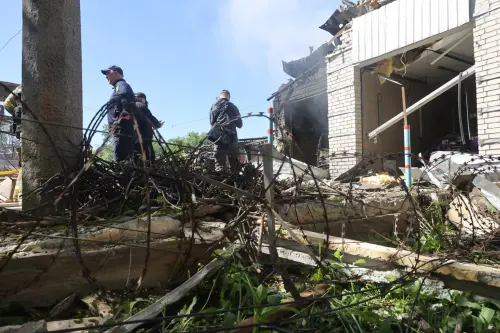On the whole Iraq goes well. American troops completed their withdrawal from city centers by June 30 as required by U.S.-Iraqi agreement. Iraq remains in a sort of semiviolent peace, to be sure, but civilian casualty rates are 90 percent less than before the surge, and Iraq overall is less violent than countries like Mexico, Colombia, South Africa or Russia.
However, the situation is still fragile. As Ken Pollack of Brookings has been saying, it is all about the politics now – and those politics are messy and fractious.
The greatest worry now is probably in Iraq’s north. This is not the Sunni-Shia problem common previously in Iraq. Rather, it is a Kurdish-Arab problem, with the interests of about 1 million Turkomen also in the mix.
The basic situation is this. Kurds make up about 4 million of Iraq’s 25 million population and govern themselves in the Kurdistan region of northern Iraq. They have been more or less autonomous since Operation Desert Storm in 1991; that status was codified by the Iraqi Constitution in 2005. They get a fixed share of national oil revenue, maintain their own military known as the peshmerga, and represent an admirable democratic minisystem within the broader county.
This is a workable model, but for one problem: Kurds want land from Iraq’s other 15 provinces to be incorporated within Iraqi Kurdistan. That includes the historic city of Kirkuk, the oil fields around Kirkuk, and much of the other land just south of Kurdistan. In principle, Article 140 of the Iraqi Constitution entitles them to a referendum on redrawing the “green line” separating Kurdistan from the rest of Iraq. The referendum was supposed to have been held by the end of 2007, but has been seen as so incendiary as to be postponed.
Arabs starting with Prime Minister Nouri al-Maliki do not believe Kurds have any inherent right to carve off more of Iraq proper for their own region, especially since most of these regions are also home to Arabs, Turkomen and others – and since Saddam is no longer around to oppress the Kurdish minority. Moreover, other Iraqis want to reinforce the strength of the central government after years of anarchy, rather than encourage the kinds of ethnic and sectarian thinking that contributed so much to past tragedies in their country.
The United Nations recently completed a report on the matter. But it hardly resolved anything. It just created several options.
The U.S. position seems to be to play for time. I believe that is becoming a mistake. Time may not be our ally. Both sides feel their oats. Maliki now commands a 300,000-person army and has unified many Shia and Sunni Arabs to support him. Meanwhile the Kurds expect that their special relationship with Washington, the historic nature of their claims to Kirkuk, and the quality of their peshmerga paramilitary give them the edge. The Iraqi army and peshmerga units are in increasingly close proximity to each other; the potential for a spark to ignite this into real conflict is growing.
Vice Joe President Biden has wisely warned Iraqis not to expect another American surge to rescue them if that happens. Nor should Kurdish friends think that we will bail them out even if the rest of the country falls apart again. But that is not enough. Tom Friedman has called for much more U.S. attention to this issue, including perhaps the appointment of a special envoy on Iraq, and I think he is right.
While it is a delicate matter for foreign countries to suggest a solution here, the alternative of waiting for Iraqis to solve it is not working. As such, I will hazard a recommendation. Kirkuk should be a city with special status under international supervision. Mosul should remain in the main part of Iraq. A multisectarian panel aided by U.N. advisers should negotiate a new “green line” in other, more rural parts of the country and explain why this new border between Kurdistan and Iraq proper is fair, if not ideal for anyone. Then a referendum should be held in which all major political figures call for approval. The goal should be to achieve rapid and overwhelming public support – ideally within the next year, while U.S. troops still provide a reassuring and neutral presence.
Other approaches could work too, of course. But benign neglect, our strategy so far, probably will not.



Commentary
Op-edIraq’s Northern Problem
July 21, 2009